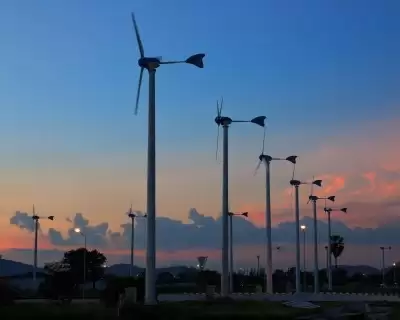Introduction Carbon markets have emerged as a cornerstone in the global fight against climate change, providing a mechanism to reduce greenhouse gas emissions while fostering innovation and sustainable growth. As governments, corporations, and individuals increasingly commit to achieving net-zero emissions, the future of carbon markets is poised for significant evolution. This article explores the trends…
Author Archives: GreenUP
Introduction The global shift toward sustainability has brought electric vehicles (EVs) into the spotlight. As more individuals and businesses adopt EVs to reduce their carbon footprint, the concept of EV carbon credits has emerged as a powerful tool to accelerate the green transition. But what exactly are EV carbon credits, and why do they matter?…
Introduction In the face of the climate crisis, innovative solutions for sustainable development are becoming increasingly vital. Among the pioneering organizations leading this charge is the I-TRACK Foundation. This foundation is dedicated to accelerating the transition to a more sustainable world through innovative technologies, community-based projects, and initiatives that empower individuals and companies to track,…
This year, 11 Cham households in Phan Hoa embarked on a transformative journey by adopting a “smart” rice cultivation model. This innovative approach incorporates alternate wet and dry irrigation and reduces seeding density, paving the way for sustainable farming. Initially, the farmers faced uncertainty and hesitation, especially regarding sparse seeding practices compared to their traditional…
Introduction In today’s rapidly changing climate, carbon credit markets have emerged as crucial tools for companies, governments, and organizations to offset their greenhouse gas (GHG) emissions. One of the cornerstones of an effective carbon credit system is the accurate measurement, reporting, and verification (MRV) of emissions reductions. MRV technology plays a pivotal role in ensuring…
Introduction In the global fight against climate change, the Paris Agreement plays a pivotal role. A significant provision of the Agreement, Article 6, aims to promote international collaboration on reducing greenhouse gas (GHG) emissions. Among its three key mechanisms, Article 6.4 stands out for its role in enabling a global carbon market through the trading…
KIEN GIANG – Recently, several farmers in Hon Dat and Kien Luong districts (Kien Giang province) received cash rewards ranging from 2.6 million to 43 million VND for participating in a low-emission rice farming project. Low-Emission Rice Cultivation Brings Economic and Environmental Benefits The project, implemented by Net Zero Carbon Joint Stock Company in collaboration…
Introduction The transition to a sustainable future is becoming a critical focus for governments, businesses, and individuals worldwide. Among the many tools driving this transition, carbon credits are emerging as a pivotal mechanism. These credits, designed to offset carbon emissions, have sparked a surge in interest among investors looking to make an environmental impact while…
As climate change accelerates, governments, businesses, and individuals are increasingly looking for ways to reduce their carbon footprint. Among the solutions gaining momentum are carbon markets, which provide a mechanism for offsetting greenhouse gas (GHG) emissions. These markets fall into two broad categories: voluntary carbon markets (VCMs) and compliance markets (CMs). While both aim to…
Sustainability has become a core focus for organizations worldwide, not just as a moral imperative but as a crucial factor for long-term success. However, achieving sustainability goals isn’t a solo effort; it requires active engagement and collaboration with both internal and external stakeholders. Engaging stakeholders effectively can lead to better alignment, enhanced credibility, and measurable…
















